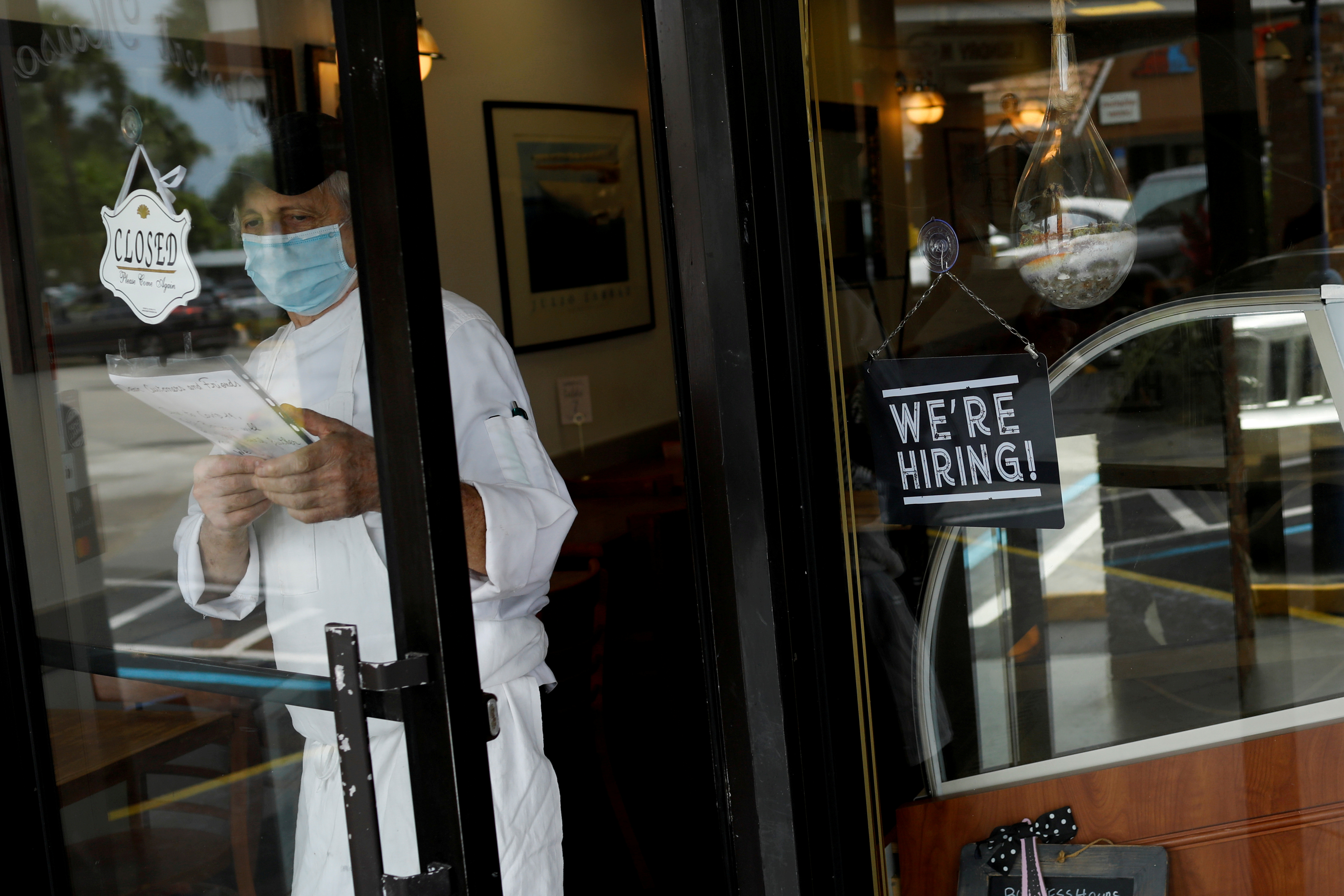THESE THINGS TOO SHALL PASS
U.S. Treasury's Yellen tells G7 to keep spending, says inflation will pass


© Reuters/POOL G7 finance ministers meet in London
LONDON/WASHINGTON (Reuters) -U.S. Treasury Secretary Janet Yellen urged other rich nations on Saturday to keep up spending to support their economies even as the COVID-19 pandemic wanes, and said U.S. inflation this year would be elevated but transitory.
Yellen told a news conference after G7 finance ministers met in London that they needed to invest in a fight against climate change and inequality, even after putting their economies "back on track" from the enormous hit of the pandemic.
Her comments placed a different emphasis on fiscal support than the joint statement by the G7 finance ministers, which also stressed the need to ensure long-term sustainability of public finances once the recovery takes hold.
"Most countries have fiscal space, and have the ability to put in place, fiscal policies that will continue promoting recovery and deal with some of the long run challenges that all of us face when it comes to climate change and inclusive and sustainable growth, and we urge countries to do that," she said.
Last week, U.S. President Joe Biden's administration put forward a $6 trillion budget plan that opponents said will fuel higher inflation - something that Yellen on Saturday said was unlikely to be permanent.
She hailed an agreement to pursue a global minimum tax of at least 15% on corporations as a return to multilateralism that would help to stabilize tax systems, while preserving national authority to set tax rates and policies.
"I really consider this a historic achievement, and it shows that multilateral collaboration can be successful," Yellen told reporters.
The United States was still pursuing a 21% minimum for the overseas earnings of U.S. companies even though the G7 agreed on at least 15%, she said.
"We haven't demanded or expressed the view that it's necessary for us to have the same level globally, but we do hope that countries will be ambitious and that the agreement is at least 15%. So we've yet to set the final rate," Yellen said.
Treasury officials have said they believe a higher U.S. tax rate will create incentives for other countries to push higher, otherwise they would miss out on potential revenue from American companies in their territory.
Not all countries would need to sign on to the global corporate tax deal for it to work, Yellen said, as it would allow countries to additionally tax overseas income of companies operating via tax havens, negating that advantage.
"It doesn't require absolute agreement across the board. It has a way of bringing hold-outs into it," she said, adding that she hoped to secure the backing of G20 countries that represent a "very large share" of global GDP at a meeting in July.
KEEPING AN EYE ON INFLATION
Yellen said inflation will remain elevated at 3% on a year-over-year basis until about the end of 2021.
"I personally believe that this represents transitory factors," she said. Production bottlenecks had caused elevated prices in some industries, such as motor vehicles, while other prices, such as airline fares, were rebounding back to more normal levels, she added.
"We'll watch this very carefully, keep an eye on it and try to address issues that arise if it turns out to be necessary," Yellen said.
There is still slack in the labor market, she said, because of people who had lost jobs permanently, and it will take a while to reabsorb those workers into the economy.
"So we shouldn't expect this process to be complete in a month or two," Yellen said. "And while we're seeing some inflation, I don't believe it's permanent."
Yellen said the G7 finance ministers agreed to ambitious commitments to de-carbonize their economies and mobilize public and private finance for action to combat climate change.
"To facilitate the mobilization of private climate finance, the G7 also agreed to take action to improve the availability of consistent, comparable, and decision-useful climate-related financial information to market participants," Yellen said in prepared remarks.
(Reputing by Andy Bruce in London and David Lawder in Washington; Editing by Bill Berkrot)
LONDON/WASHINGTON (Reuters) -U.S. Treasury Secretary Janet Yellen urged other rich nations on Saturday to keep up spending to support their economies even as the COVID-19 pandemic wanes, and said U.S. inflation this year would be elevated but transitory.
Yellen told a news conference after G7 finance ministers met in London that they needed to invest in a fight against climate change and inequality, even after putting their economies "back on track" from the enormous hit of the pandemic.
Her comments placed a different emphasis on fiscal support than the joint statement by the G7 finance ministers, which also stressed the need to ensure long-term sustainability of public finances once the recovery takes hold.
"Most countries have fiscal space, and have the ability to put in place, fiscal policies that will continue promoting recovery and deal with some of the long run challenges that all of us face when it comes to climate change and inclusive and sustainable growth, and we urge countries to do that," she said.
Last week, U.S. President Joe Biden's administration put forward a $6 trillion budget plan that opponents said will fuel higher inflation - something that Yellen on Saturday said was unlikely to be permanent.
She hailed an agreement to pursue a global minimum tax of at least 15% on corporations as a return to multilateralism that would help to stabilize tax systems, while preserving national authority to set tax rates and policies.
"I really consider this a historic achievement, and it shows that multilateral collaboration can be successful," Yellen told reporters.
The United States was still pursuing a 21% minimum for the overseas earnings of U.S. companies even though the G7 agreed on at least 15%, she said.
"We haven't demanded or expressed the view that it's necessary for us to have the same level globally, but we do hope that countries will be ambitious and that the agreement is at least 15%. So we've yet to set the final rate," Yellen said.
Treasury officials have said they believe a higher U.S. tax rate will create incentives for other countries to push higher, otherwise they would miss out on potential revenue from American companies in their territory.
Not all countries would need to sign on to the global corporate tax deal for it to work, Yellen said, as it would allow countries to additionally tax overseas income of companies operating via tax havens, negating that advantage.
"It doesn't require absolute agreement across the board. It has a way of bringing hold-outs into it," she said, adding that she hoped to secure the backing of G20 countries that represent a "very large share" of global GDP at a meeting in July.
KEEPING AN EYE ON INFLATION
Yellen said inflation will remain elevated at 3% on a year-over-year basis until about the end of 2021.
"I personally believe that this represents transitory factors," she said. Production bottlenecks had caused elevated prices in some industries, such as motor vehicles, while other prices, such as airline fares, were rebounding back to more normal levels, she added.
"We'll watch this very carefully, keep an eye on it and try to address issues that arise if it turns out to be necessary," Yellen said.
There is still slack in the labor market, she said, because of people who had lost jobs permanently, and it will take a while to reabsorb those workers into the economy.
"So we shouldn't expect this process to be complete in a month or two," Yellen said. "And while we're seeing some inflation, I don't believe it's permanent."
Yellen said the G7 finance ministers agreed to ambitious commitments to de-carbonize their economies and mobilize public and private finance for action to combat climate change.
"To facilitate the mobilization of private climate finance, the G7 also agreed to take action to improve the availability of consistent, comparable, and decision-useful climate-related financial information to market participants," Yellen said in prepared remarks.
(Reputing by Andy Bruce in London and David Lawder in Washington; Editing by Bill Berkrot)


















